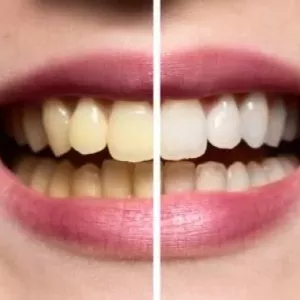استثمار المال في البورصة: كيف تبدأ خطوة بخطوة؟

مقدمة
لطالما اعتُبرت البورصة واحدة من أكثر الطرق فعالية لبناء الثروة على المدى الطويل. ومع ذلك، يخشى الكثيرون دخول هذا المجال ظنًا منهم أنه معقد أو يتطلب مبالغ مالية كبيرة. لكن الحقيقة هي أن استثمار المال في البورصة أصبح أكثر سهولة من أي وقت مضى بفضل المنصات الرقمية والمصادر التعليمية المنتشرة.
في هذا المقال، سنرشدك خطوة بخطوة لكيفية دخول عالم البورصة، بدءًا من فتح حساب استثماري، وصولًا إلى شراء الأسهم الأولى لك، مع تقديم نصائح ذهبية لتقليل المخاطر وتحقيق أرباح مستدامة.
ما هي البورصة؟
البورصة هي سوق مالية يتم فيها شراء وبيع الأسهم والأوراق المالية. الشركات تقوم بطرح أسهمها للاكتتاب العام لجمع رأس المال، والمستثمرون يشترون هذه الأسهم على أمل تحقيق أرباح من ارتفاع أسعارها أو من خلال توزيعات الأرباح.
لماذا تستثمر في البورصة؟
1. تنمية رأس المال على المدى الطويل
الاستثمار في الشركات الناجحة يمكن أن يضاعف أموالك خلال سنوات قليلة.
2. دخل سلبي من توزيعات الأرباح
بعض الشركات تدفع أرباحًا دورية للمستثمرين، مما يمنحك مصدر دخل مستقر.
3. السيولة وسهولة الدخول والخروج
يمكنك شراء أو بيع الأسهم بسهولة عبر الإنترنت دون تعقيد.
كيف تبدأ الاستثمار في البورصة؟
الخطوة 1: حدد أهدافك الاستثمارية
هل تريد دخلًا شهريًا؟ أم تنمية رأس المال على المدى البعيد؟ تحديد الهدف سيساعدك في اختيار نوع الأسهم والاستراتيجية المناسبة.
الخطوة 2: اختر وسيطًا ماليًا (Broker)
اختر منصة مرخصة ومعروفة، مثل:
-
eToro
-
Interactive Brokers
-
Plus500
-
TD Ameritrade
تأكد من أن المنصة تناسب بلدك وتقدم عمولات منخفضة.
الخطوة 3: افتح حساب تداول
عملية فتح الحساب غالبًا ما تكون رقمية بالكامل وتتطلب إثبات هوية ومعلومات مالية بسيطة.
الخطوة 4: موّل حسابك
ابدأ بمبلغ بسيط حسب قدرتك. لا حاجة لآلاف الدولارات لتبدأ.
الخطوة 5: اختر الأسهم المناسبة
ركز على الشركات ذات الأداء الثابت، مثل شركات التكنولوجيا، الأغذية، الطاقة أو القطاع الصحي.
الخطوة 6: راقب استثماراتك وكن صبورًا
الاستثمار في البورصة يحتاج صبرًا وتعلمًا مستمرًا، لا تتوقع الثراء السريع.
أنواع الاستثمار في البورصة
1. الاستثمار المباشر في الأسهم
شراء أسهم شركات معينة والاحتفاظ بها لفترة طويلة.
2. صناديق المؤشرات (ETFs)
صناديق تجمع أموال المستثمرين وتوزعها على مجموعة كبيرة من الأسهم، وتوفر تنوعًا بأقل تكلفة.
3. الصناديق المشتركة
يديرها محترفون وتحتاج لمبالغ أعلى غالبًا، لكنها خيار جيد لمن لا يملك وقتًا للتحليل.
أهم النصائح لتجنب الخسائر
لا تستثمر بمبلغ تحتاجه في وقت قريب
استثمر فقط المال الذي يمكنك الاستغناء عنه لفترة طويلة.
تجنب المضاربة العشوائية
لا تشترِ سهمًا بناءً على إشاعة أو نصيحة مجهولة المصدر.
تعلم التحليل الأساسي
افهم ميزانيات الشركات، معدلات النمو، والقطاعات التي تنشط فيها.
لا تتأثر بالمشاعر
الخوف والجشع هما أكبر عدوين للمستثمر الناجح.
أفضل قطاعات للاستثمار في 2025
-
التكنولوجيا الخضراء
-
الذكاء الاصطناعي والروبوتات
-
الرعاية الصحية والتكنولوجيا الحيوية
-
شركات الطاقة المتجددة
خاتمة
الاستثمار في البورصة هو أحد أهم أدوات تحقيق الاستقلال المالي، ويمنحك فرصة لتنمية أموالك بطريقة ذكية ومستدامة. لا تدع الخوف أو الجهل يمنعك من البدء. بالمعرفة والتخطيط السليم، يمكنك الدخول إلى هذا العالم بثقة وتحقيق نتائج إيجابية.
ابدأ اليوم بخطوات بسيطة، وتذكّر أن كل مستثمر ناجح كان يومًا ما مبتدئًا مثلك تمامًا.
الكلمات المفتاحية (Keywords):
الاستثمار في البورصة، كيفية شراء الأسهم، الاستثمار الشخصي، أفضل الأسهم، دليل المبتدئين للاستثمار، الأسهم المربحة، كيف أبدأ الاستثمار، دخل من البورصة، سوق الأسهم، صناديق الاستثمار، تداول الأسهم للمبتدئين، الاستثمار طويل الأجل، البورصة للمبتدئين.







